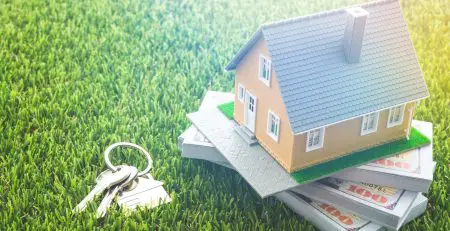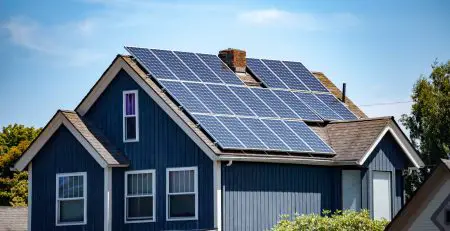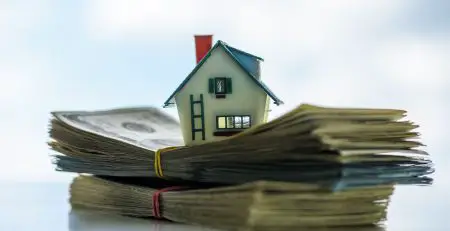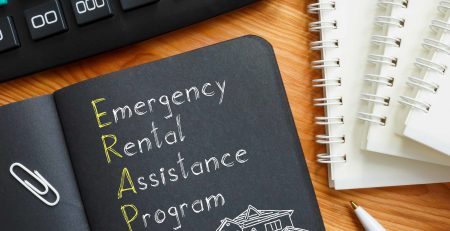Have you ever felt like you just can’t keep up with how much life costs? If so, you’re not alone. This is especially true for people when it comes to housing expenses. Luckily, there are available resources that you can take advantage of. One that’s worth highlighting in particular is from the United States Department of Housing and Urban Development (HUD). HUD has a website known as the “HUD Home Store”. Now you may be thinking, “An entire store for homes?” But that’s not exactly how it works. Instead, this website contains different listings that are more affordable for homebuyers to consider. Which is why it is important to be aware of opportunities out there to get housing that works for your budget!
The HUD Home Store Offers a Variety of Properties
You can look for different kinds of homes that are available from the Dollar Home Program and the Good Neighbor Next Door (GNND) Program. Don’t worry, those aren’t the only affordable housing options available! Actually, a majority of the available homes on the HUD Home Store are properties that face foreclosure. If you’re wondering why, then it is because these homes go back to the government after foreclosure. To understand how this website works, you’ll find that it serves a search engine to look up properties that are for sale. Also, the HUD Home Store provides beneficial information and tips to support buyers throughout the home-buying process.
Before you hop on the website and apply for affordable housing, you should know about the screening process. Yes, there is a screening process, but that comes from the HUD. The HUD figures out which properties would exclusively help local governments or approved non-profit agencies for affordable programs. However, it is not that easy either! These properties are usually in a certain area that is going through revitalization. What happens if the property does not fit any of these programs? Well, the HUD offers the home to people who need these properties so they have a place to live. That way, they will be helping people who need a primary residence to buy. After that is over, available homes will go through the standard sale process. Did you know that this website helps families and brokers? That’s right. The HUD Home Store allows real estate brokers and registered agencies to bid on homes on behalf of the client.
$1 Homes
The HUD helps local governments in buying properties to offer affordable housing support to the community. How do they do that? Well, the HUD allows local governments to buy homes for only a dollar! It sounds like a scam, but it is an actual legitimate federal program.Once local governments have the homes, they can repair them and offer affordable housing to eligible individuals. Furthermore, local governments have the chance to find help from local nonprofit homeownership organizations or participating in local programs. However, the homes available need to meet the following requirements, which is:
- Staying available on the market for a minimum of six months
- Having a market value at a maximum of $25,000
Good Neighbor Next Door (GNND) Properties
This program allows eligible individuals to buy a home with a 50% discount. However, not anyone can qualify. There are three kinds of requirements for this program:
- The type of property,
- The recipients of the program
- The conditions to buy the home.
Let’s start with the GNND eligibility requirements for the recipients, which are firefighters, Emergency Medical Technicians (EMTs), teachers of pre-k to 12th-grade students, and law enforcement officers. One requirement that is standard across recipients is that they need to be working in the area of the property and be working full-time in their respective field. For example, a teacher must work-full time in a private/public school that educates pre-k to 12th-grade students with state accreditation. Additionally, law enforcement officers need to swear to abide by the law and arrest anyone who breaks those laws.
Now, let’s talk about the conditions to buy the home. There are requirements, but they are pretty simple! Recipients need to sign a second mortgage and a note for the discount amount. Finally, let’s talk about the property’s requirements. There are two main requirements, which are:
- Living in the home for at least 3 years (36 years) as their main place of residence
- Needs to be in a revitalization area
Selling HUD Homes That Face Foreclosure And Finding Out What They Are
This might be the final type of properties on the HUD Home Store, but they are actually the most common. You will find different kinds of foreclosed homes that go from 1-unit to 4-units. If you want to buy these kinds of homes, then you need to include a real estate broker that is registered with the HUD in the process. They have the opportunity to present a contract since they have more knowledge about real estate. Furthermore, brokers are important to the HUD Home Store because they support buyers throughout the home-buying process. To clarify, not any home that goes through foreclosure is available. Properties that have Federal Housing Administration, or FHA-insured mortgages, are available because the FHA is a part of the HUD. Naturally, the HUD takes back the homes and puts them up for sale in their current state.
When we say current state, we mean that any damages to the home is the responsibility of the buyer and not the HUD. This is important to keep in mind because it could be costly. The main goal of selling these properties is to recover any financial loss that the HUD went through. It obviously shows that the properties’ damage would not be an added cost to deal with.
In Conclusion
If you want to buy a home that is affordable for your budget, then you might not find it easily. However, we are gonna let you in on a hidden gem for affordable housing, which is the HUD Home Store. The HUD Home Store offers different kinds of properties like the following:
- Dollar Homes
- GNND Homes
- HUD Homes That Face Foreclosure
Keep in mind that the HUD is responsible for this website, but it works on helping the public and local governments find affordable housing. Your dream home might be just around the corner, so don’t be afraid to look!











